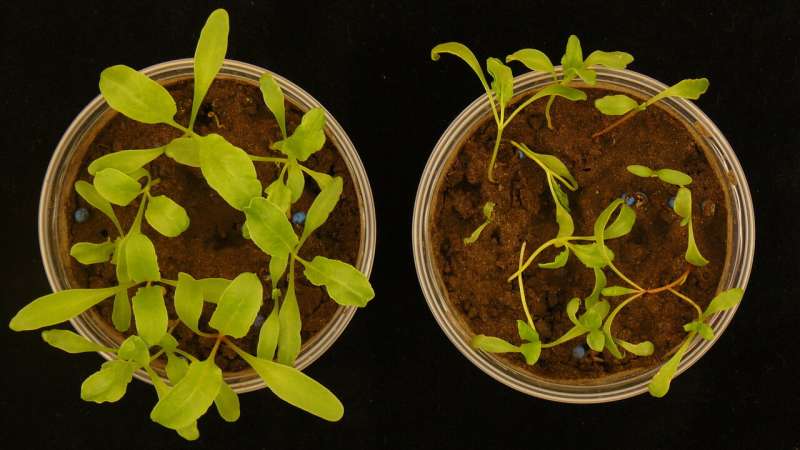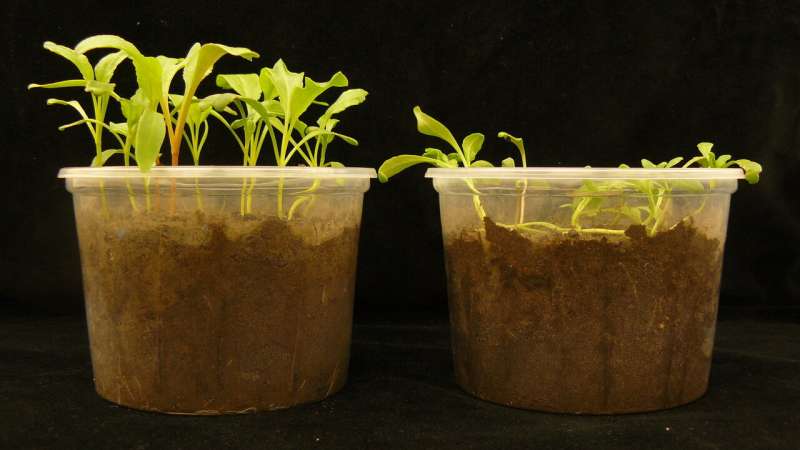Credit: NIOO
A team of researchers affiliated with several institutions in The Netherlands and two in Brazil has discovered how some soil bacteria protect crops against a fungal disease. In their paper published in the journal Science, they describe their transcriptional analysis of several types of soil bacteria. Susannah Tringe with the U.S. DOE's Joint Genome Institute, has published a Perspective piece in the same journal issue outlining the work done by the team.
Prior research has shown that some plants are protected by microbiota in the soil against infections such as by Rhizoctonia solani—a fungus. Soils conferring such protection are referred to as "suppressive soils." In this new effort, the researchers sought to learn more about the microbiota in the roots of plants (endophytes) and in the surrounding soil (rhizosphere microbiota) in areas where there is suppressive soil. To that end, they collected multiple soil samples from a farm in The Netherlands known to have suppressive soil. They also collected multiple samples of sugar beets grown on the farm.
The work by the team involved separating and identifying the various microorganisms living in the soil and roots. They then carried out metagenomics studies on them using a DNA technology that allows for mapping the entire diversity of micro-communities. The team was able to analyze the DNA of thousands of bacteria species at the same time.
The researchers report that many types of bacteria in the soil have a host of genetic traits that protect the plants that grow in the soil. Many of them produced useful substances such as chitinases, for example, which are enzymes that can break down the walls of attacking fungal cells. They also found 700 biosynthetic gene clusters that were responsible for the production of such special substances—only 12 of which were known before the study. Additionally, they found that the bacteria were capable of producing secondary metabolites such as polyketides, phenazines and siderophores, which also have antifungal properties.
Credit: NIOO
More information: Víctor J. Carrión et al. Pathogen-induced activation of disease-suppressive functions in the endophytic root microbiome, Science (2019). DOI: 10.1126/science.aaw9285
Journal information: Science
© 2019 Science X Network

























